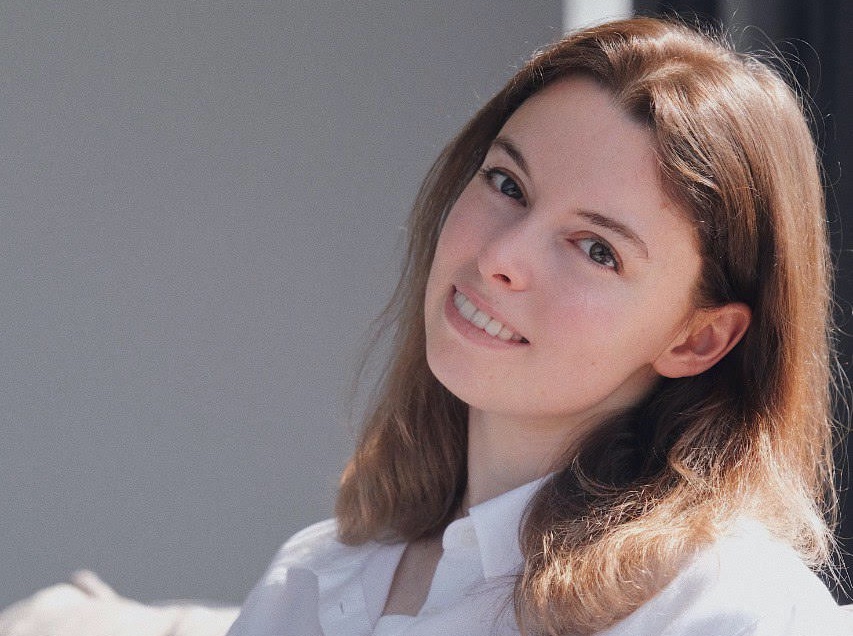"Quality Education is Key to Country’s Economic Growth"

Ilianna Danengirsh earned her bachelor’s from ICEF in 2016 and her double master’s in Management & Big Data from IE Business School in Spain. Ilianna’s employment history includes McKinsey, Bain and an EdTech startup. In this interview, Ilianna explains why financial experts should be looking to improve their data skills, what makes building a start-up a unique experience, and why coming back to consulting can be a wise decision.
About ICEF community
I have always had a passion for mathematics and was naturally looking to do a math-related degree. It had to be a tailored, career-focused degree. And because HSE’s programme seemed to have that perfect blend of hands-on skills and solid academic training, I did not consider any other schools. I was choosing between HSE Faculty of Economic Sciences, HSE-NES programme, and ICEF. The latter obviously seemed to have more advantages and benefits than its counterparts.
When I became its student, ICEF impressed me even more. One benefit was particularly notable.
What matters most about a university is not the education that it gives you, although ICEF students can’t complain, but its people and community
A high spirited community can really drive one to perform better. When you look up to you classmates and they look up to you, it’s always a win-win relationship. ICEF is in this regard one of the best colleges in Russia. Its students have great personalities and are ambitious people. I enjoyed every minute of having them around. Many of the people in my class have built impressive careers and are still my source of motivation.
About finding your best-fit career
HSE and ICEF traditionally hosts meet-the-industry sessions and career guidance events. If you are wise enough to use the opportunities before you, you’ll soon find yourself building your own professional network, and you’ll soon come to realize what works best for you. My class was lucky to have workshops hosted by the biggest players in the industry, as well as case championships and courses by McKinsey. We were given everything a university can give students to help them decide on their career choice, win internships and thoroughly prepare for entering the workplace. On the career guidance side, the team of ICEF Career Services have a lot to offer. As to academic careers and entrepreneurship spirit, these are equally encouraged, too. ICEF is a perfect springboard to careers in a lot of fields.
In my first and second year I interned with a consulting firm and at Letovo School. The latter prompted my interest in education services, but my first full-time job was nevertheless in consulting, at McKinsey. McKinsey has ‘trained’ many good specialists and can prepare one for any endeavor, but I knew I didn’t want to stay in consulting forever. When you are freshly graduated and want to try different things to understand what fits you best and what you’re good at, there’s no better place. Consulting will equip you with solid skills and working habits that will definitely come in handy in your future jobs.
About IE Business School in Madrid
Many fresh bachelor’s graduates find it had to decide between doing a master’s and joining the workforce. This choice is never easy. I never thought of master’s studies as a must-do for everyone who wants to build a successful career, but I thought I shouldn’t delay. I thought I might just never find time, even though it’s only two years. My other motive was to experience the life abroad. I started to look for a suitable degree, choosing between LBS, Imperial, and St. Gallen, but my choice ultimately fell on IE Business School in Madrid, because its programme embraced management and data science.
I hadn’t had any experience with data-science before. But given my background in finance, the domain sounded exciting to explore. The management part of the studies was easy. My previous experience as an intern and case championship participant at ICEF had prepared me well. I even felt a little bored without the vibrant pace that was set for us at HSE, and I used my time to study for and pass the CFA Level 1 exam. As to the data-science part, it proved a real challenge. I had to put a lot of effort to master, in just one year, the domain that I was absolutely new to. While working on the many digital projects at the confluence of economics and IT, I gained some really useful knowledge.

My programming learning challenges were counterbalanced by the programme’s focus on applied business skills, and I soon understood the design behind combining business studies with data science. Business education helps up give structure to tasks and to stick with doer mindset, but the biggest trouble with data science is that many of us have to learn it from scratch.
Even a master’s from a reputable business school may not always guarantee to accelerate your career. Master’s studies are mostly about broadening your horizons and giving you lots of new soft skills. To many employers, the mention of your master’s on your resume is not a sign you are a better candidate. In this sense, master’s studies are more about upgrading yourself than your career chances. But in my case, the IE Business School diploma did play a role – McKinsey skipped me the entry-level position and appointed straight to business analyst, as is the case with every hire with a degree from a top ranking business school.
About data science for business
Data science is an important element of finance. As trading and nearly all business sectors become increasingly dependent on digital technologies, industries such as retail, medicine, telecom, finance can no longer operate successfully without IT. And consulting is no exception. It follows exactly the trends that we see occurring in the industry, with many projects shifting their focus towards digital technologies for business and data analytics.
About EdTech startup experience
I wanted to join EdTech since my internship with Letovo. I view quality education as an essential asset and a key to country’s economic growth. It is that something that allows people to drive the design of future processes. With this in mind, I wanted to contribute to a privately-owned EdTech company or project, as this format seems to be much more productive than conventional education system.
The EdTech project that I joined is called Synchronization. What I liked most about it is its team being absolutely focused on quality. Synchronization works at the interface of education and entertainment and, unlike the majority of projects of its kind, has as its core product humanities courses, not tech courses. They are meant to enhance personal development and are suited more for soul-searchers than career seekers. This point seemed important to me. If you take little interest in what you study, you’re unlikely to benefit from it. I really enjoyed building that new and unique product for the Russian market, growing together with it.

First, my duties involved attracting investment, lead generation webinars and audience analysis, and then I was entrusted with a business unit and became responsible for all its courses. What really came in handy in that job was not only my background in finance, but also my ability to learn new things and think analytically. ICEF taught me how to navigate within an unfamiliar industry by using structured thinking and delegating things. I learned a lot while in EdTech business, from course generation to packaging to marketing. I was a part of a cross-functional team and was able to explore the startup culture from the inside.
About plans
I didn’t plan on leaving Synchronization. The project is still working fine, but it chose to go international, while I wanted to be on the Russian EdTech market, so I found myself in a bit of a dead end.
When I decided to leave the project, I thought, why not return to consulting. It’s exactly where I’ll be able to figure out what to do and where to be next
Bain seemed a natural choice. I had good contacts with its team from my previous job at the office in Moscow – and more so, Bain seems to be always happy to welcome its trainees back and encourage their progress. I was offered a consultant position, only not in Moscow, but in London. Once there, I should be able to figure out how to get to the next level in EdTech.
And I certainly want to meet ICEF alumni in London. It’s always nice to have people who share your values and can support you in a foreign place. It’s great to know there is a large, close-knit community of ICEF alumni in London. I hope to become its part.